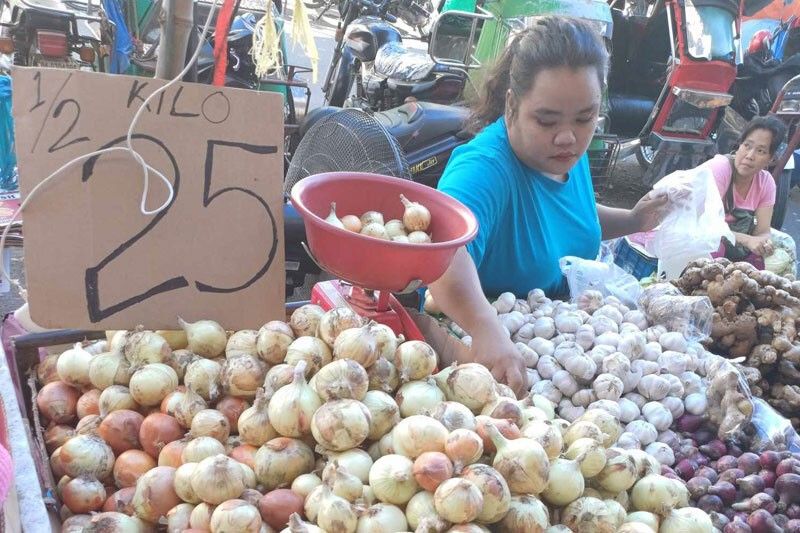75% dissatisfied with government effort vs inflation – poll

MANILA, Philippines — Despite the easing inflation reported in recent months, three in every four Filipinos now say they are dissatisfied with the government’s efforts to control the rising cost of basic commodities, a recent survey conducted by the OCTA Research group showed.
Results of the Dec. 10 to 14 survey released on Feb. 17 found a record-high 75 percent of respondents saying they were dissatisfied with the government’s performance in managing inflation.
Only six percent were satisfied, while 19 percent were undecided.
Compared to a similar survey in October, satisfaction with the government’s efforts to control inflation dropped by eight points from 14 percent, while dissatisfaction increased by 11 points from 64 percent.
The Philippine Statistics Authority recently reported that headline inflation slowed to a three-year low of 2.8 percent in January.
It dropped from 4.9 percent in October, 4.1 percent in November and 3.9 percent in December.
Although lower than the inflation rate recorded in the first half of 2023, having a positive inflation rate means that prices of basic commodities continue to increase.
Meanwhile, satisfaction with the government in terms of reducing poverty further dropped from 29 percent to 14 percent, while dissatisfaction increased from 31 percent to 46 percent. The remaining 40 percent were undecided.
The Marcos administration also obtained a satisfaction rate of less than the majority in six other issues: creating more jobs (33 percent satisfied, 31 percent dissatisfied), ensuring food security (34 percent satisfied, 32 percent dissatisfied), reducing hunger (39 percent satisfied, 23 percent dissatisfied), fighting graft and corruption (41 percent satisfied, 26 percent dissatisfied), reducing the amount of taxes (46 percent satisfied, 17 percent dissatisfied) and helping the poor (48 percent satisfied, 20 percent dissatisfied).
Out of the 24 issues included in the survey, the government obtained its highest satisfaction rating in terms of building public infrastructure (81 percent satisfied, three percent dissatisfied), followed by effective response to natural disasters (77 percent satisfied, six percent dissatisfied) and protecting the welfare of overseas Filipino workers (77 percent satisfied, six percent dissatisfied).
These were followed by providing quality and affordable health care (75 percent satisfied, five percent dissatisfied), providing quality and secondary education (75 percent satisfied, six percent dissatisfied), providing quality tertiary and technical education (75 percent satisfied, six percent dissatisfied) and improving foreign relations (72 percent satisfied, five percent dissatisfied).
Also obtaining majority satisfaction were protecting human rights (69 percent satisfied, five percent dissatisfied), promoting peace and order (66 percent satisfied, nine percent dissatisfied), stopping the destruction of the environment (66 percent satisfied, 10 percent dissatisfied), defending the integrity of Philippine territory against foreigners (65 percent satisfied, 12 percent dissatisfied), preparing for terrorist threats (62 percent satisfied, nine percent dissatisfied) and equal enforcement of the law (60 percent satisfied, 10 percent dissatisfied).
Completing the list were fighting criminality (56 percent satisfied, 13 percent dissatisfied), controlling population growth (51 percent satisfied, 20 percent dissatisfied) and preventing the spread of illegal drugs (50 percent satisfied, 23 percent dissatisfied).
Meanwhile, aside from controlling inflation and reducing poverty, dissatisfaction also rose in terms of fighting graft and corruption (from 21 percent to 26 percent), ensuring food security (from 20 percent to 32 percent) and creating more jobs (from 11 percent to 31 percent).
- Latest
- Trending































